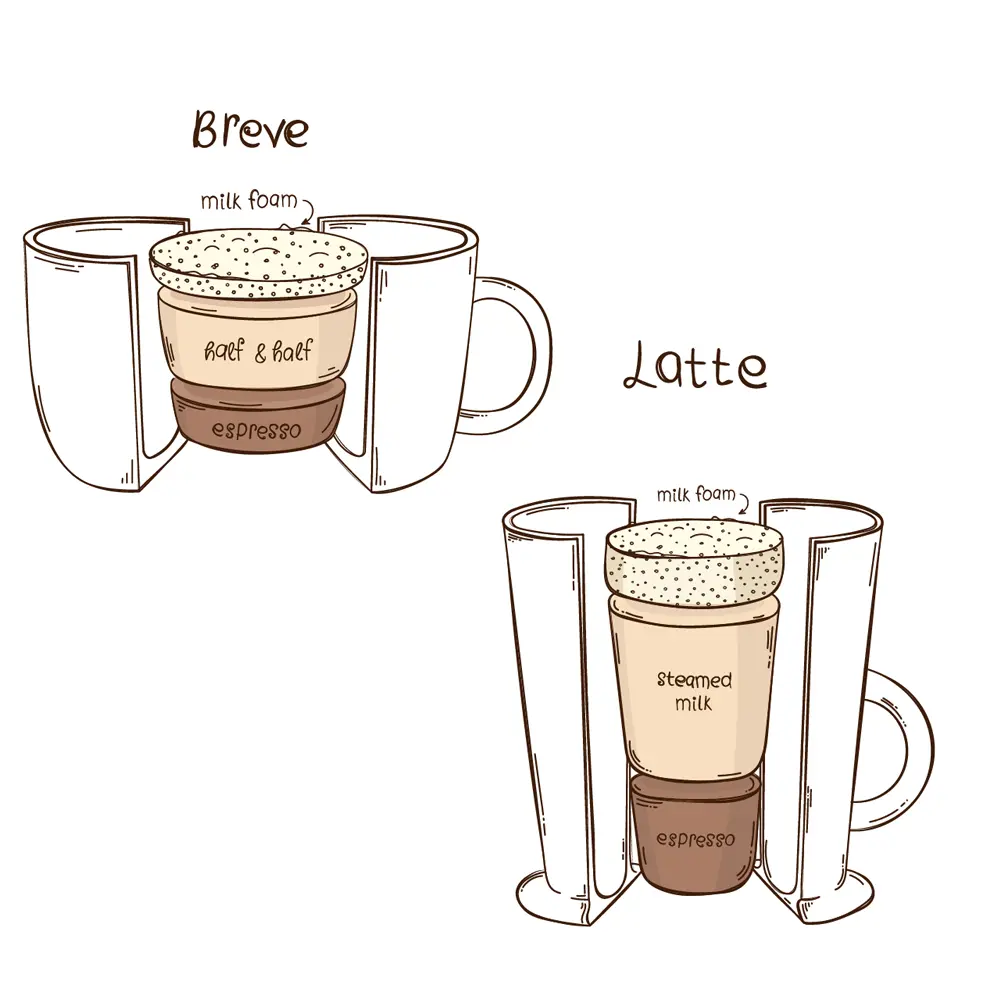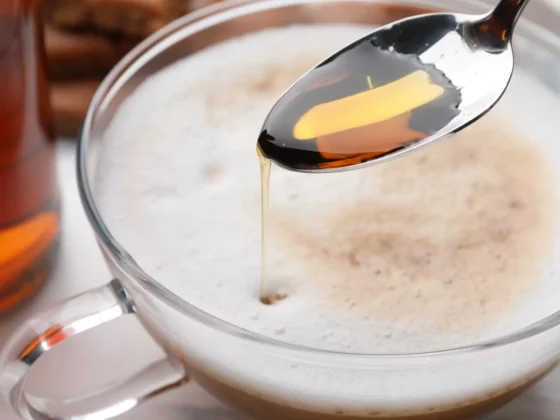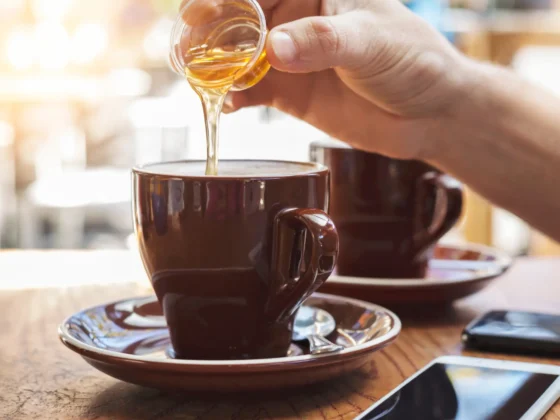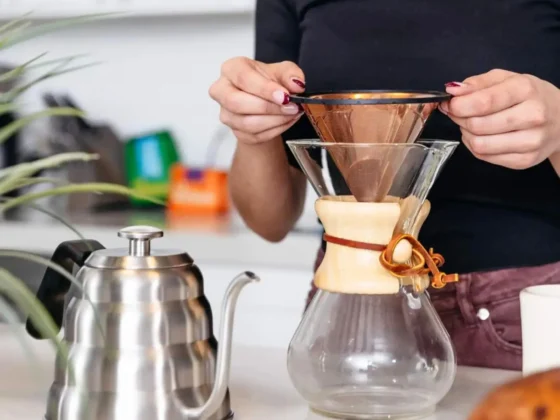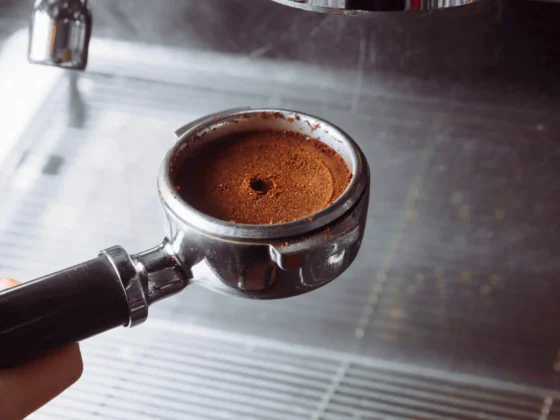In the realm of hot beverages, coffee, and tea stand as two pillars that have captured the hearts and taste buds of people worldwide. But have you ever asked yourself, “Can you make tea in a coffee maker?” If the question has ever piqued your curiosity, you’re in the right place.
Contrary to popular belief, your coffee maker is a versatile appliance, capable of more than just brewing your morning cup of joe. It holds untapped potential, ready to transform your tea-drinking experience.
In this article, we’ll delve into the intriguing intersection of tea and coffee-making appliances. You’ll discover how to manipulate your coffee machine to brew a comforting and perfect cup of tea. So, let’s embark on this voyage of taste and innovation as we explore the possibilities and magic of brewing tea in a coffee maker.
Making Tea in a Coffee Maker: Key Takeaway
- Tea Brewing in a Coffee Maker is Possible: You can indeed brew a flavorful and satisfying cup of tea in a coffee maker, thanks to the appliance’s ability to heat water and steep it with a flavor source, which is the fundamental process required for both coffee and tea brewing.
- Understanding Brewing Differences is Key: There are fundamental differences in brewing coffee and tea, particularly in terms of water temperature and steeping time. For optimal tea brewing in a coffee maker, you must understand these differences and adjust the process accordingly.
- Cleaning is Essential: Thorough cleaning of the coffee maker before and after brewing tea is vital. This practice prevents cross-contamination of flavors and helps maintain the appliance in good condition, ensuring its safe operation.
- Experts Weigh In: While brewing tea in a coffee maker offers convenience and efficiency, experts suggest that traditional methods might offer more control over factors that influence tea quality and taste. The method you choose largely depends on your personal preferences and lifestyle needs.
- Safety and Health Considerations: Brewing tea in a coffee machine is safe, and the process can even help to maximize the health benefits of tea by properly extracting beneficial compounds. However, proper cleaning and maintenance of the coffee maker are important to prevent bacterial growth and flavor cross-contamination.
Understanding the Concept: Tea Brewing in a Coffee Maker
The intriguing idea of brewing tea using a coffee maker is more than just a fun experiment; it’s a demonstration of how versatile kitchen appliances can be. This practice has gained traction among tea enthusiasts and coffee maker owners alike, thanks to the convenience and innovation it brings.
The Idea Behind Brewing Tea in a Coffee Maker

Brewing tea in a coffee maker is an idea rooted in both necessity and ingenuity. For many, it began as a way to prepare a soothing cup of tea when a traditional kettle or teapot was not at hand. This need sparked a broader realization: coffee makers, in their design and function, could provide an alternative, and often more convenient, way to brew tea. The essence of making tea in a coffee maker lies in embracing this appliance’s versatility, making the most of what you have, and redefining the boundaries of traditional beverage making.
What Makes a Coffee Maker Suitable for Tea Brewing
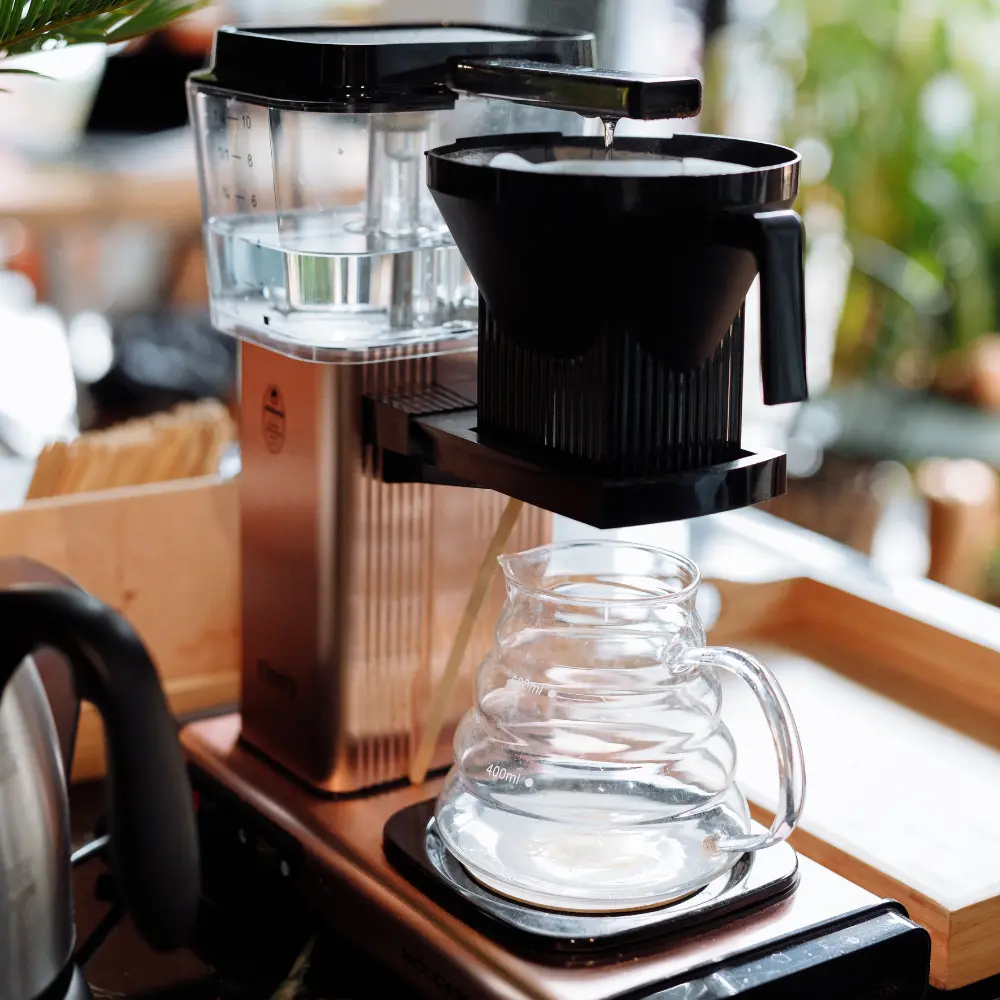
A coffee maker’s ability to brew tea is primarily due to its fundamental design. Here’s why a coffee machine can be your unexpected tea-brewing companion:
- Temperature Control: Coffee brewers are designed to heat water to the optimal temperature for extracting flavor, which aligns well with most teas’ brewing temperatures.
- Steeping: The process of drip brewing in a coffee machine allows the hot water to steep with the tea leaves, similar to traditional methods, thereby extracting a full-bodied flavor.
- Convenience: Coffee makers automate the brewing process, providing a hands-off approach to tea making that can be ideal for busy individuals.
Tea vs. Coffee: Fundamental Differences in Brewing
The tea vs coffee debate isn’t just about taste; it extends to the brewing process as well. While coffee is typically brewed under pressure, extracting its flavors quickly, tea requires a more patient approach with steeping being central to the process. The temperature requirements vary too, with coffee needing near-boiling water, while most teas demand a lower temperature to prevent bitterness.
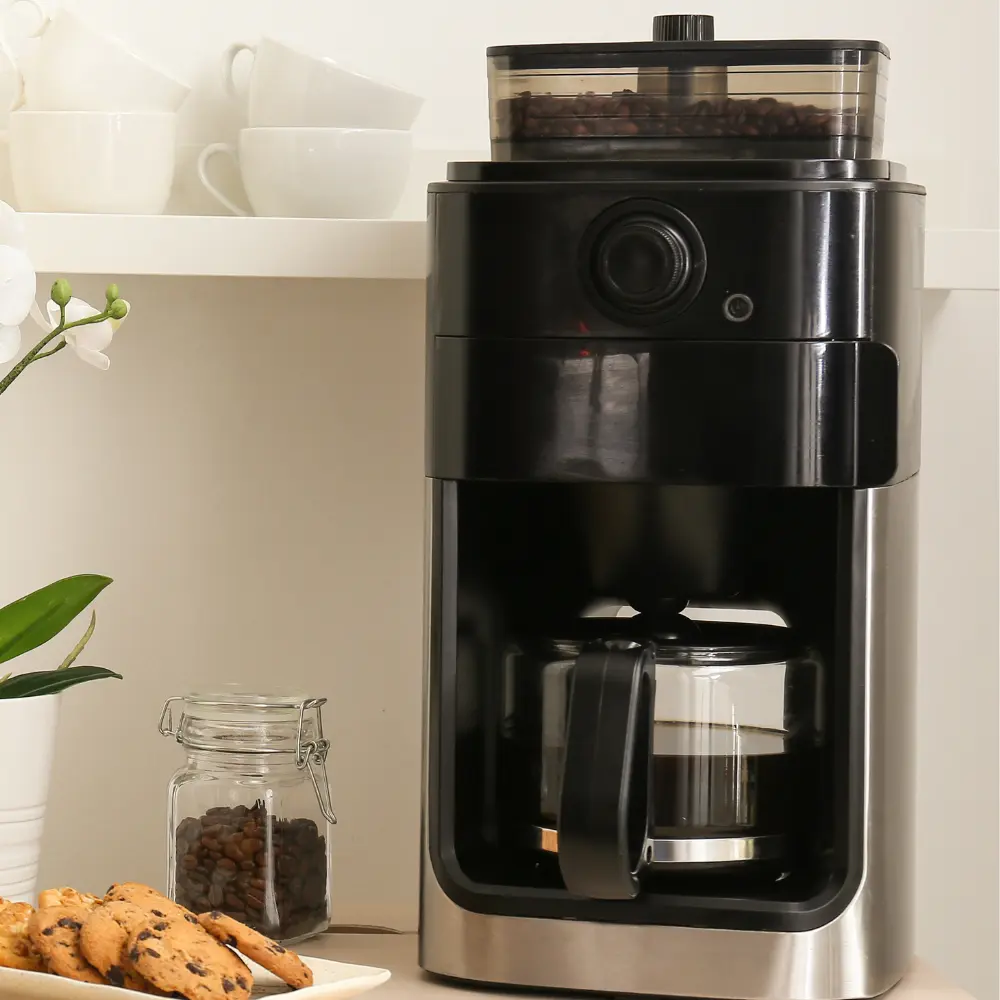
However, when it comes to coffee brewers, these differences are taken into account. The design of the coffee maker manages to align with the requirements of tea brewing. By controlling the water temperature and allowing ample steeping time, a coffee maker can indeed prepare a delightful cup of tea, bridging the gap between these two beloved beverages.
Step-by-step Guide: How to Make Tea in a Coffee Maker
Unleashing the tea brewing potential of your coffee maker is easier than you might think. By following these steps, you can turn your coffee machine into an unexpected ally in the quest for a perfect cup of tea.
Choosing the Right Type of Tea
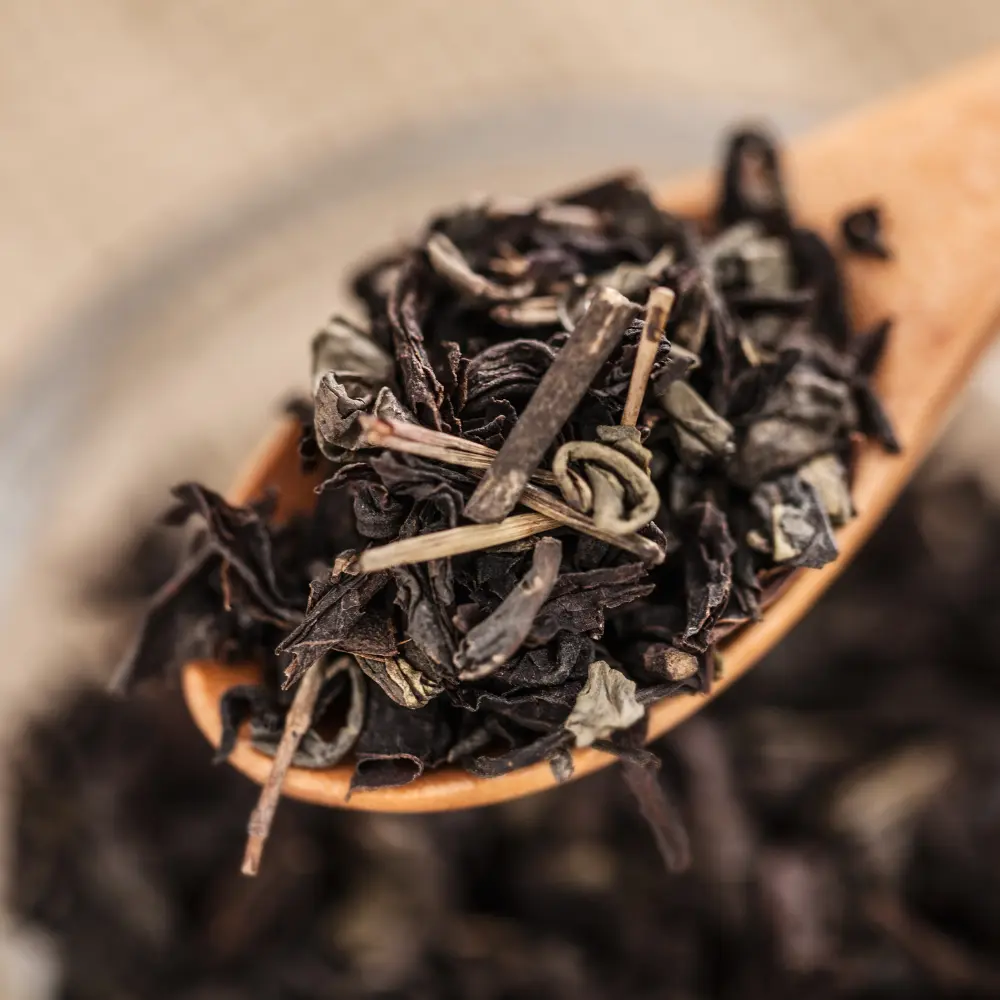
The first step in the process is choosing your tea. Any type of tea can technically be brewed in a coffee appliance. However, for the best results, full-leaf loose teas are ideal as they allow for maximum extraction of flavors. Remember that the flavor of the tea can vary depending on the brewing time and water temperature, so select a tea whose nuances you enjoy and are familiar with.
- Black Tea: Robust and rich, this tea goes well with the coffee maker’s temperature profile. (1)
- Green Tea: Mild and aromatic, green tea requires a slightly cooler temperature. Run a brew cycle with just water to cool down the coffee machine before brewing.
- Herbal and Fruit Teas: These teas are forgiving and can be brewed at varying temperatures without drastically affecting the taste.
Brewing Process: From Water to the Perfect Cup of Tea

Here’s a simplified guide on how to make tea in a coffee maker:
- Clean Your Brewer: Start by thoroughly cleaning your coffee machine to remove any residual coffee flavor. You can run a cycle with a vinegar-water solution, followed by several cycles with plain water.
- Add Water: Fill the coffee maker with the amount of water for your desired cups of tea.
- Add Tea: Place your loose-leaf tea or tea bags in the coffee filter. As a general guideline, use one tea bag or one teaspoon of loose-leaf tea per cup.
- Brew: Turn on your coffee brewer and let it run a full cycle.
- Steep: Once the cycle is finished, let the tea steep for the appropriate time for the chosen tea type. For example, black tea usually needs about 3-4 minutes, while green tea requires a shorter steeping time of 2-3 minutes.
- Enjoy: After the tea has steeped, it’s ready to serve. You can enjoy it as is or add extras like milk, sugar, or lemon to taste.
Cleaning the Coffee Maker Post-Tea Brewing

Properly cleaning your coffee machine after brewing tea is crucial to prevent the mixing of flavors in your next brew. Follow these steps:
- Remove and Discard Used Tea: Empty the used tea from the filter basket and dispose of it properly.
- Clean the Filter Basket: Rinse the filter basket thoroughly under running water.
- Run a Water Cycle: Fill the coffee appliance with clean water and run a full brewing cycle. This step helps to clear any residue or lingering flavors from the brewing pathway.
- Clean the Carafe: Rinely thoroughly the carafe with warm, soapy water, making sure to remove any tea stains.
- Dry: Once everything is clean, let all parts air dry completely before reassembling.
By following this process, you’re ensuring that your coffee maker remains a trustworthy companion for both your coffee and tea brewing needs.
Tips and Tricks for Perfect Tea Brewing in a Coffee Maker
Brewing a satisfying cup of tea in a coffee maker is not only about the mechanics but also the art of understanding and adjusting to variables such as water temperature and brewing time. Here are some expert tips to ensure that your experiment with making tea in a coffee maker yields a pleasing and flavorful result.
Achieving the Optimal Water Temperature

The water temperature plays a crucial role in tea brewing, directly affecting the flavor profile. While a coffee machine usually heats water to near boiling, which is perfect for black and herbal teas, other types like green and white tea require a lower temperature. Here’s how you can manage this:
- Let the Water Cool: If you’re brewing tea that requires a lower temperature, allow the water to cool for a few minutes after the brewing cycle finishes before adding your tea. This pause can help achieve the optimal temperature range.
- Run a Water-Only Cycle: Alternatively, run a cycle with only water before brewing your tea. This step can also help to cool down the water to a suitable temperature for more delicate teas.
Determining the Ideal Brewing Time for Different Teas

The brewing time, or the time the tea leaves spend in contact with water, significantly impacts the taste of your tea. Although the coffee maker manages the brewing cycle’s time, you can control the steeping time post-brewing:
- Black Tea: Typically requires a steeping time of 3-4 minutes.
- Green Tea: Green tea has a shorter steeping time of 1-2 minutes.
- White Tea: Requires a longer steeping time of up to 5-6 minutes.
- Herbal Teas: These can be steeped for longer without turning bitter, typically around 5-7 minutes.
Remember, the longer you steep, the stronger the taste. Adjust this time according to your preference.
Ensuring the Flavor and Aroma of Your Tea Aren’t Compromised
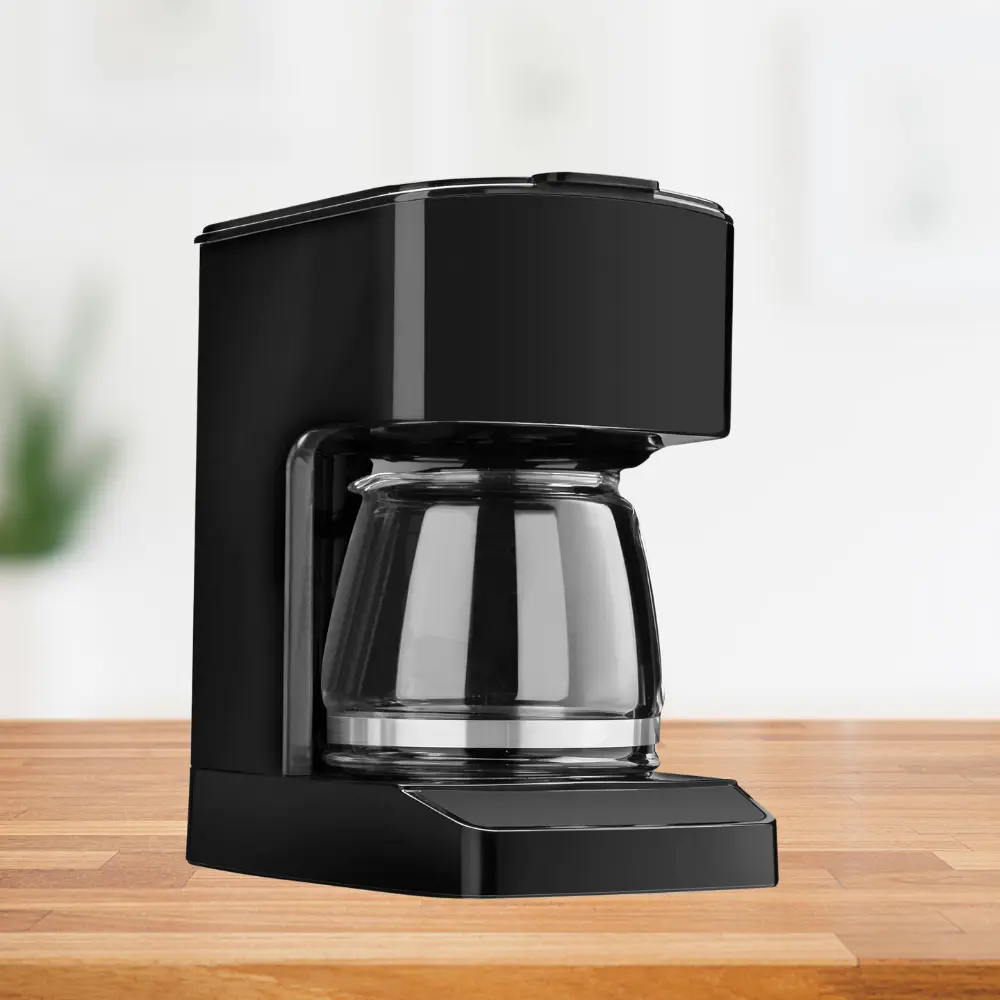
A major concern when brewing tea in a coffee machine is the potential for flavor cross-contamination. Following these tips can ensure the integrity of your tea’s flavor and aroma:
- Clean Your Coffee Maker: As discussed earlier, before and after brewing tea, clean your coffee brewer thoroughly to prevent the residual taste of coffee from seeping into your tea.
- Use Fresh, Quality Tea: Fresh and high-quality tea can provide a strong, distinct flavor that is less likely to be overshadowed by any residual coffee taste.
- Consider a Dedicated Coffee Brewer: If you find yourself frequently making tea, you might consider dedicating a coffee brewer solely to tea brewing to avoid any flavor mixing.
With these tips and tricks at your disposal, brewing a perfect cup of tea in your coffee appliance will be as much an art as it is a convenience.
Health and Safety Considerations While Brewing Tea in a Coffee Maker
As you venture into brewing tea in a coffee maker, it’s essential to address the health and safety considerations that may arise. Let’s navigate through the safety aspects, health benefits, and how to prevent flavor cross-contamination between coffee and tea.
Is it Safe to Brew Tea in a Coffee Maker?
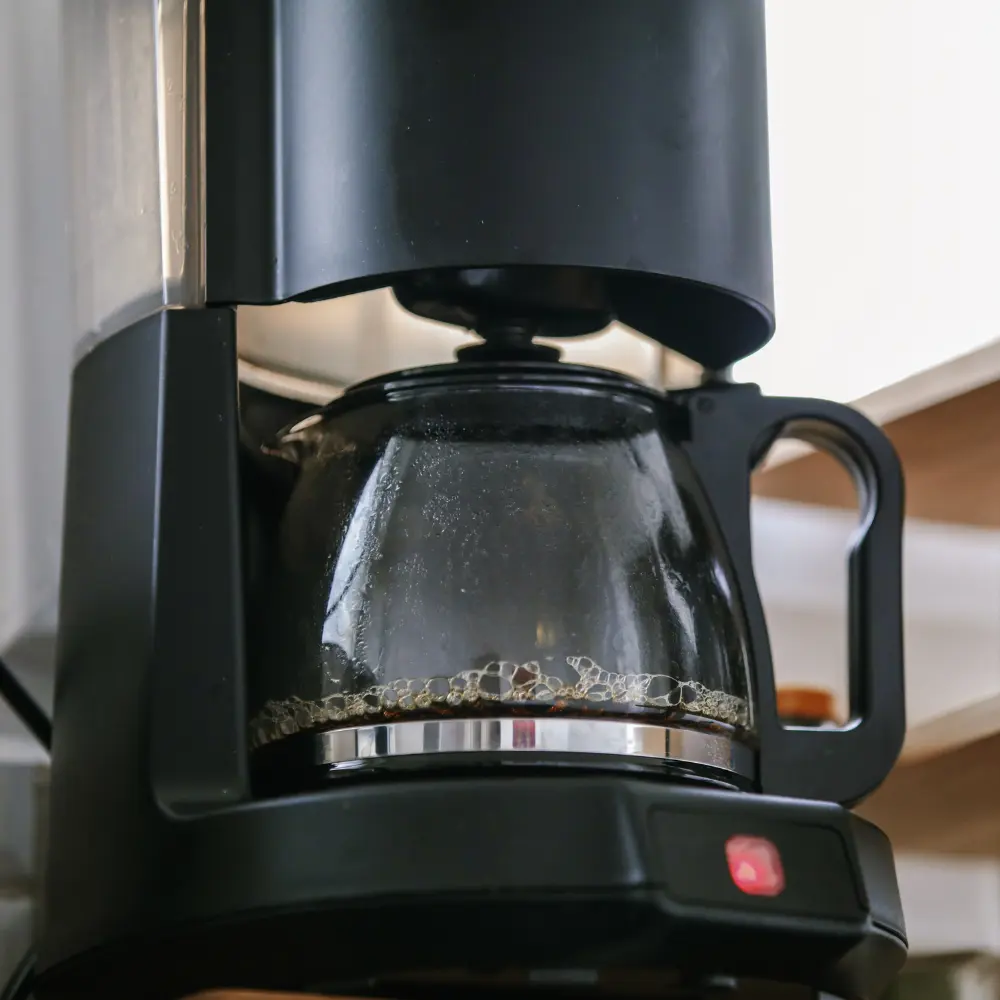
The simple answer is yes, it’s safe to brew tea in a coffee maker. The basic function of a coffee machine—to heat water and steep it with a flavor source—is shared by both coffee and tea brewing methods. So, there’s no inherent danger or health risk associated with brewing tea in a coffee machine. However, it’s vital to keep the appliance clean and in good condition to ensure its safe operation.
Health Benefits of Tea: Maximizing Potential in a Coffee Maker
Tea is renowned for its health benefits, ranging from its antioxidant properties to the calming effect it can have on the mind and body. (2) Brewing tea in a coffee machine can maximize these health benefits by properly extracting the flavors and compounds that contribute to tea’s health-promoting properties:
- Antioxidant Boost: Both green and black teas are rich in antioxidants, which can help protect the body from oxidative stress.
- Hydration: Regularly consuming tea can contribute to your daily hydration needs.
- Mindful Moments: The process of brewing and enjoying a cup of tea can provide a moment of mindfulness and relaxation in your busy day.
Mitigating Cross-Contamination Between Coffee and Tea
While the process of brewing tea in a coffee maker is safe, there can be concerns about flavor cross-contamination between coffee and tea. As mentioned before, if you regularly brew both beverages in the same machine, it’s crucial to clean your coffee brewer thoroughly after each use. This practice will not only ensure the taste integrity of your drinks but also help to maintain the health and safety of your appliance by preventing build-up or bacterial growth.
If flavor cross-contamination continues to be an issue, you might consider using separate coffee brewers for tea and coffee brewing or opt for a tea infuser for a more traditional tea brewing method.
Navigating these health and safety considerations can help you feel confident and safe while exploring the practice of brewing tea in a coffee machine.
Expert Reviews: Tea Brewing in a Coffee Maker vs. Traditional Methods
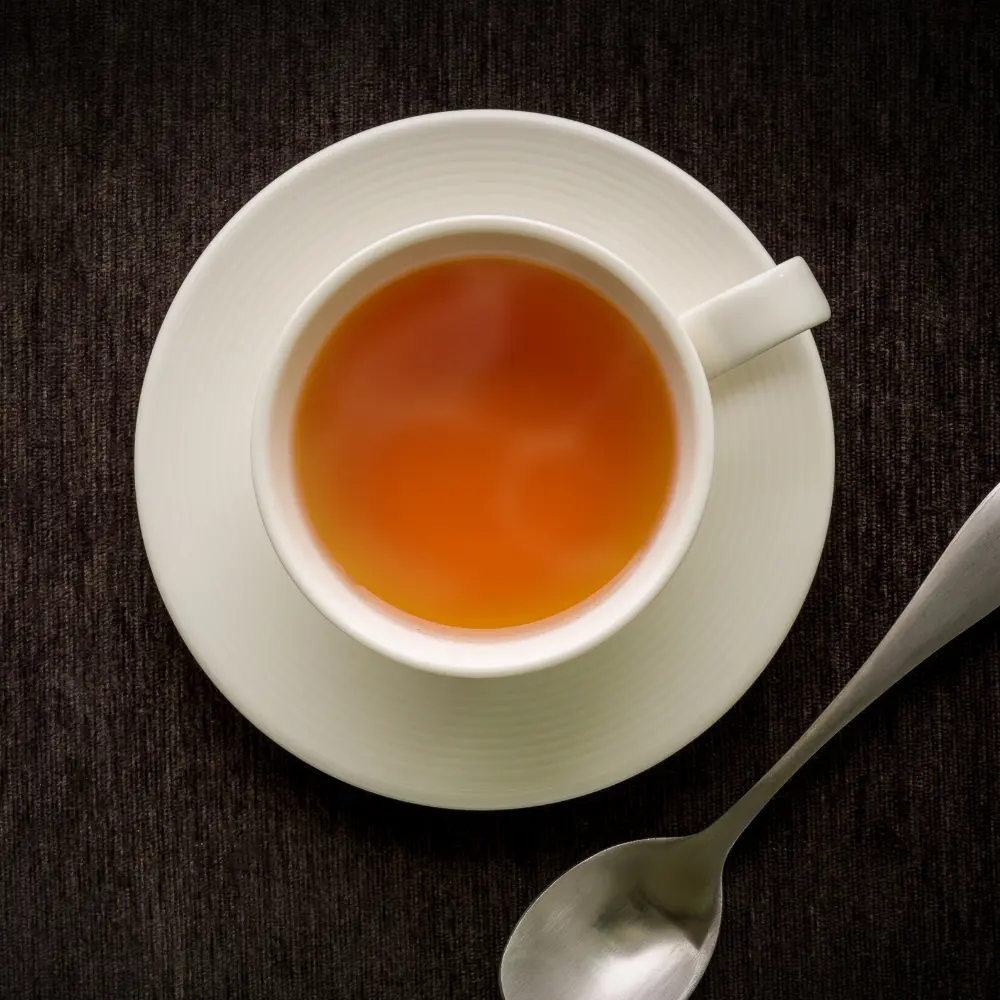
As more and more people are discovering the convenience of making tea in a coffee maker, experts have been weighing in on the comparison between this new method and traditional tea brewing. From flavor quality to efficiency and equipment longevity, let’s explore what the experts have to say.
Quality and Taste Comparison
According to tea connoisseurs, the quality and taste of tea can be influenced by several factors including water quality, temperature, and steeping time. When brewed correctly, making tea in a coffee maker can produce a flavorful, satisfying cup of tea that rivals traditionally brewed tea. However, achieving the optimal temperature and steeping time might require some practice and fine-tuning, especially for more delicate teas like green and white tea. Traditional tea brewing methods might offer more precise control over these factors, making them preferred by purists.
Efficiency and Convenience in Brewing
From an efficiency and convenience perspective, brewing tea in a coffee machine can be a game-changer. It automates the process, allowing you to prepare your tea and then move on to other tasks. Furthermore, it makes brewing large quantities of tea easier, making it an excellent option for hosting large families. While traditional methods provide a meditative, immersive experience, a coffee brewer’s convenience is hard to beat for those with busy lifestyles.
The Impact on the Longevity of Your Coffee Maker
As for the longevity of your coffee machine, experts agree that using it to brew tea should not harm the machine, provided it’s cleaned thoroughly after each use. Over time, neglecting to clean your coffee brewer properly can lead to build-up or residue that may affect both its performance and the taste of your brews. This rule applies regardless of whether you’re making coffee or tea.
To sum up, brewing tea in a coffee maker can be a convenient and efficient method, particularly for those who value ease and simplicity. However, for maximum flavor and quality, particularly with delicate teas, traditional methods might still hold an edge. The key is to understand your needs, preferences, and the specific requirements of the tea you’re brewing.
Conclusion
In conclusion, the answer to the question, “Can You Make Tea in a Coffee Maker?” is a resounding yes. This unconventional approach to tea brewing offers a unique blend of convenience and versatility, opening up new avenues for tea and coffee lovers alike. It serves as a testament to the flexibility of a coffee maker, transforming it from a single-purpose appliance to a multi-faceted tool.
By understanding the fundamental differences between coffee and tea brewing, adapting the process to cater to different tea types, and meticulously cleaning the coffee machine post-brewing, you can ensure a high-quality cup of tea. The tips and tricks shared in this guide aim to optimize the brewing process while considering health and safety aspects to ensure a seamless and worry-free experience.
Despite potential flavor cross-contamination concerns, with proper care and maintenance, your coffee brewer can efficiently brew both beverages without compromising the taste or aroma. Though traditional tea brewing methods might still be preferred by tea connoisseurs, the convenience and ease of using a coffee appliance can’t be overlooked, especially in today’s fast-paced world.
As we’ve discovered, the realm of possibilities for your humble coffee machine is far more extensive than it might initially seem. With this newfound knowledge, it’s time to put on your experimental hat, try brewing your favorite tea in your coffee maker, and enjoy a different kind of tea time.
FAQ
Does brewing tea in a coffee machine alter its health benefits?
Brewing tea in a coffee brewer does not alter its health benefits, but proper brewing techniques must be applied to ensure optimal extraction of beneficial compounds.
How do I prevent my tea from tasting like coffee when using a coffee maker?
To prevent your tea from tasting like coffee when using a coffee machine, thoroughly clean the machine before and after each use to remove any residual coffee flavors.
What is the ideal water temperature for brewing tea in a coffee maker?
The ideal water temperature for brewing tea in a coffee machine depends on the type of tea; near boiling for black and herbal teas, and a lower temperature for green and white teas.
Are there specific brands of coffee brewers best suited for brewing tea?
While most coffee appliances can be used to brew tea, models with adjustable water temperatures and brew strengths might offer more control for brewing different types of teas.









